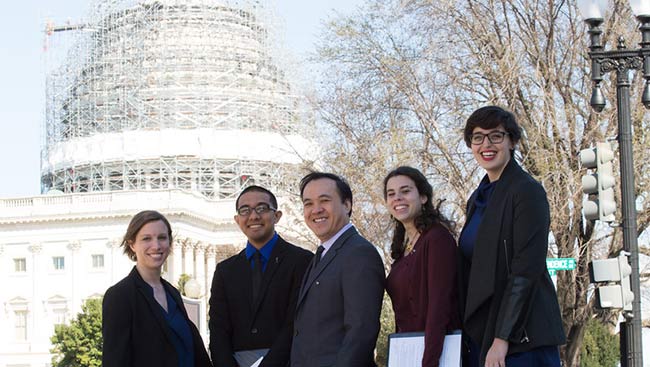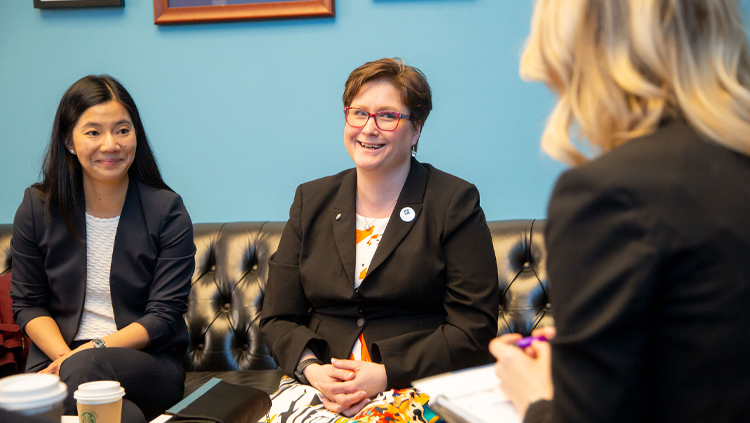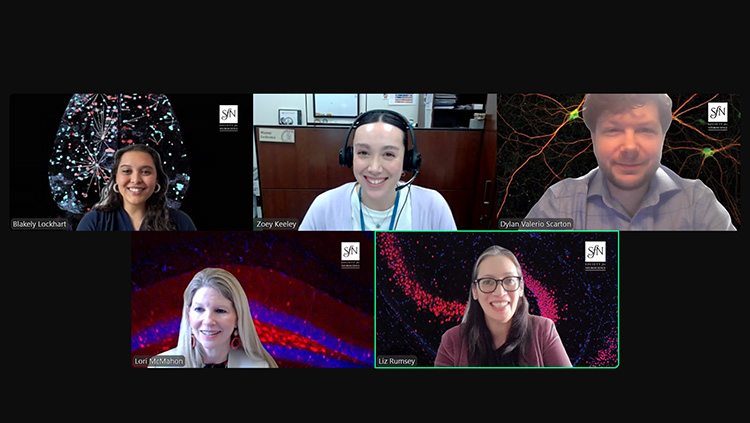
As undergraduate students, we are at the earliest stages of our neuroscience careers. Yet as we try to balance our coursework and experiments, it is still important to understand the climate of biomedical research funding and keep track of ongoing public policy conversations. Changes in federal support for neuroscience have a large impact on our work and scientists’ research across the field.
With our entire careers ahead of us, and being full of hope for new tools, techniques, and findings that will lead to more discoveries, we, undergraduate students, are uniquely poised to communicate our views and concerns to elected officials and policymakers.
The question is: How can we most effectively leverage our perspectives to effectively advocate the importance of supporting the scientific enterprise?
One of the ways I found useful is participating in SfN’s annual Capitol Hill Day in 2016. This is a day when scientists from different career stages and institutions and with diverse research interests come to Washington, DC, to meet with federal lawmakers.
While anyone can participate, I attended as an Early Career Policy Ambassador (ECPA). I am part of SfN’s yearlong program aimed to train early career scientists in effective advocacy for neuroscience research and federal support. At Hill Day, I was joined by 11 other ECPAs. This was the program’s kickoff activity, and it could not have been a better experience.
Here are some of my key takeaways from my time in DC:
- Our elected officials value our opinions as constituents. They want to hear from everyone about how policy changes affect our decision to stay or leave the field, and how critical research will be impacted. I was glad to see this because when I arrived for Hill Day training, I was a little nervous about how policymakers would consider my research experience and insights.
- Communicating our science to policymakers is not only an important element of practicing science but also a valuable mental exercise. Thinking about my work from a policy angle sparked new ideas for expanding my current experiments and future studies for my research group.
- Interacting and learning from colleagues at all levels of their academic careers is invaluable, especially given our mutual interest in neuroscience advocacy. My Hill Day group included a postdoctoral fellow, faculty member, and two graduate students. It was eye-opening to hear about their backgrounds and what science advocacy means for them at their career stage.
Overall, attending Hill Day 2016 was an insightful experience, one that I would encourage all scientists to attend.








